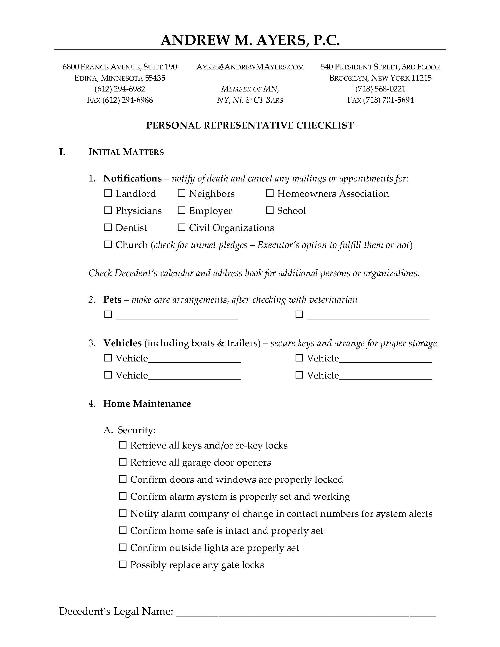![]() Can You Tell Me About Probate?
Can You Tell Me About Probate?
That’s the question that I get asked at every estate planning meeting. Almost everyone I meet with has heard the word probate. They may have dealt with the administration of a family member’s estate. Some have even been to “Probate Court” if that is what it is called in their state. But as far as terminology goes, it’s an intimidating word. No one is really sure what it is. But they all know that they need to ask about it.
What is Probate?
Probate is a legal term for what most people know as “estate administration” – the process a court uses to distribute a dead person’s assets. The laws in each state differ on how assets should be distributed. I am not here to tell you about the probate laws of all 50 states (there are books that can do that).
When a person dies, there are two main questions that need to be answered,
- Did the person have a valid will?
- Is Probate necessary?
If a person dies with a valid will, that will governs how their assets are distributed. They are considered to have died testate (another intimidating legal term you may have heard). If a person dies without a will? Then they are considered intestate and you need to look to the state’s laws to figure out how the assets will be distributed.
Do I Need Probate?
Once you’ve figured out if the person had a will, the next question is whether their assets require probate. Each state provides a different procedure. Generally, the states have an expedited procedure for small or midsize estates. These alternate procedures are often referred to as summary or affidavit. The laws of each state differ, so it’s best to consult with a local attorney to determine if the estate will qualify for one of these alternate procedures.
Next Steps
If you don’t have a will yet and all of these legal terms are foreign to you, but you know that you need to get some kind of estate plan in place, let's set up a Legal Strategy Session and we can review the best options for you.


 Can You Tell Me About Probate?
Can You Tell Me About Probate?